Get Tirzepatide Prescription for Weight Loss
Want tirzepatide for weight loss? With Heally, you can consult with a licensed medical provider online. If appropriate, they may prescribe you tirzepatide for weight loss -Zepbound. No insurance required. Heally connects you with doctors who evaluate your needs and, when medically appropriate, can prescribe tirzepatide. If prescribed, your medication is delivered discreetly to your door.
Weight Loss Program starting $250/Month
Fee includes:

Tirzepatide (Mounjaro/Zepbound) weight loss results
Tirzepatide is a GLP-1 medication that supports steady weight loss by reducing appetite. Studies from Eli Lilly show that with diet and lifestyle changes, patients can lose up to 20% of their body weight in six months. Results may vary, and depend on diet, exercise, and how closely you follow treatment. Zepbound, the FDA-approved medication whose active ingredient is Tirzepatide, is a good option when guided by a physician.
Remember that individual responses to the medication can vary. Keep in mind that besides taking medication, other lifestyle choices and careful consultation with a healthcare provider are highly recommended.
Not sure which GLP Medication is right for you?
Speak to our care team today!
GLP-1 Medications for Weight Loss
Price starts at $299 from Eli Lilly Direct and shipped directly to your home. No insurance necessary. Zepbound (tirzepatide) is an FDA approved weight loss medication that targets both GLP-1 and GIP receptors. In contrast to Semaglutide, which solely focuses on the GLP-1 receptor, Zepbound’s innovative approach not only aids in significant weight loss but also enhances overall metabolic health more effectively.
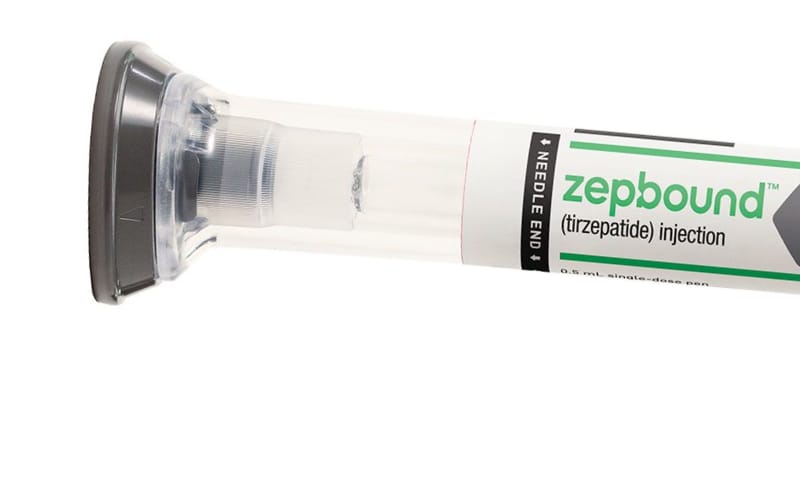
Ozempic whose active ingredient is semaglutide, is FDA approved for type 2 diabetes, has shown to promote weight loss. Studies indicate that, on average, people using Ozempic for weight loss experience a 5-15% weight loss when combined with healthy lifestyle changes such as diet and exercise.
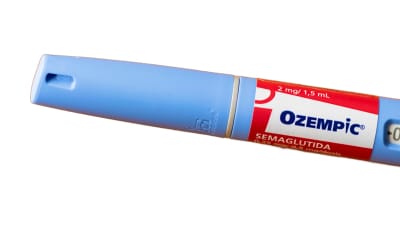
Wegovy, designed specifically for weight management comes as a once-weekly injection with a higher dosage than Ozempic, resulting in more substantial weight loss. In clinical trials, individuals using Wegovy for weight loss experienced an average weight loss of 15%.
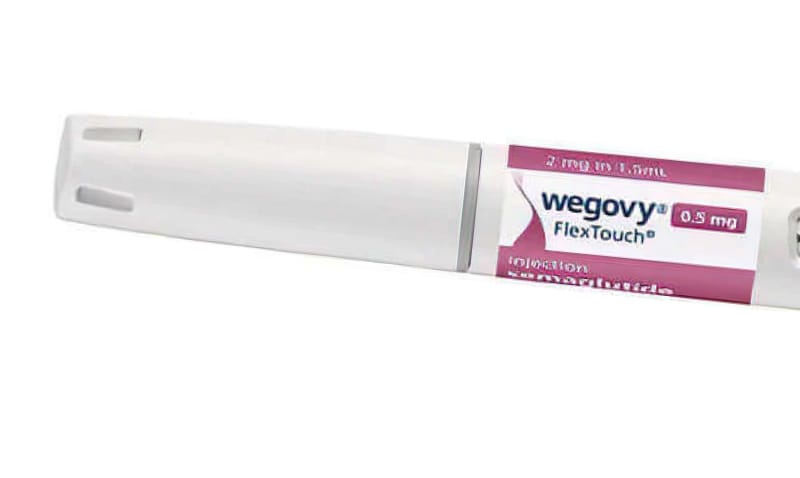
Rybelsus is the brand name for oral semaglutide, a pioneering medication designed for the management of type 2 diabetes. It is the first GLP-1 receptor agonist available in a tablet form, eliminating the need for injections. Rybelsus works by enhancing insulin secretion, suppressing appetite. Rybelsus is not FDA approved for weight loss.
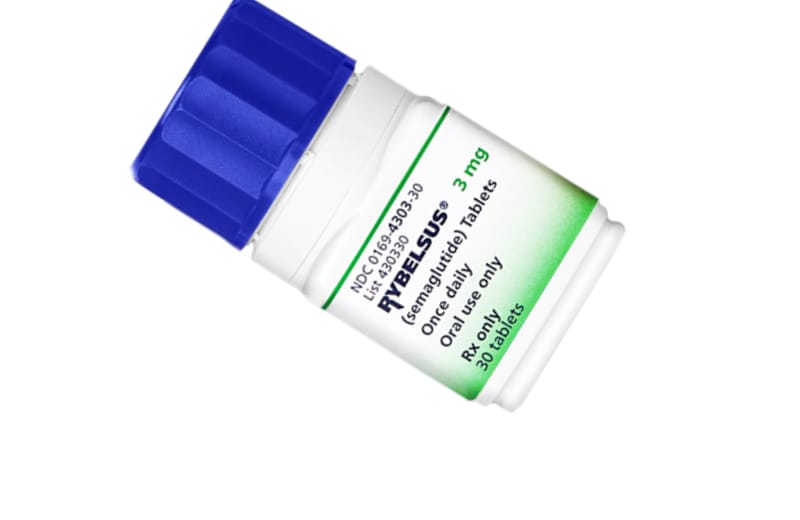
Mounjaro (tirzepatide) is a medication that acts on both GLP-1 and GIP receptors, offering a dual mechanism to enhance weight loss and improve glucose control, making it distinct from other semaglutide treatments like ozempic for weight loss.
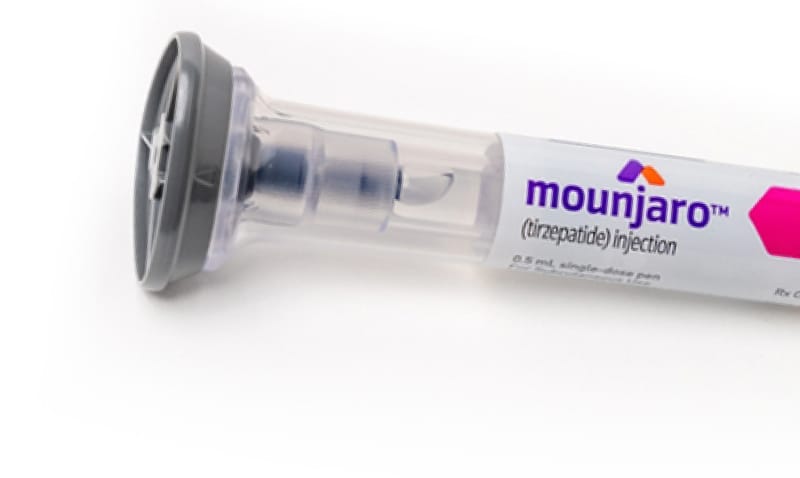
Liraglutide is a GLP-1 receptor agonist medication used for weight management and type 2 diabetes treatment. Available under brand names Victoza (for diabetes) and Saxenda (for weight loss), it helps regulate blood sugar and reduce appetite. Compounded liraglutide offers a customized approach to weight loss, working by mimicking a natural hormone that targets areas of the brain controlling appetite and food intake.

Tirzepatide mechanism of action
How does tirzepatide help you lose weight? Tirzepatide is the active ingredient in both Zepbound and Mounjaro. It’s changing how we approach weight loss. Unlike insulin, this ingredient is a peptide that mimics natural hormones called incretins. These hormones help control blood sugar and reduce appetite. Tirzepatide, under FDA-approved medication Zepbound is used for weight loss and clinical trials has shown better results than many older treatments. It supports steady weight loss by helping you feel full longer and eat less.
How does tirzepatide work for weight loss? It helps the body release insulin when blood sugar is high. At the same time, it lowers glucagon levels and slows how fast the stomach empties. This helps you feel full longer and eat less. As a result, some people lose weight steadily.
Is tirzepatide approved for weight loss? Yes. Tirzepatide, sold as Zepbound, is FDA-approved for weight loss for certain populations. Clinical trials show strong results in people with obesity or excess weight. As an active ingredient of Zepbound, Tirzepatide is now one of the available weight loss medications.
Do you qualify for Zepbound (Tirzepatide)








How to get tirzepatide prescription for weight loss?
Connecting with a doctor and, if relevant, getting a weight loss prescription online is simple with Heally. Through our telehealth platform, you can meet with a licensed doctor from home. If approved, you'll get a prescription for Zepbound, the FDA-approved weight-loss medication containing tirzepatide. Your medication is then shipped directly to your door through Eli Lilly Direct. It's fast, secure, and convenient—no clinic visits required.
Insurance coverage for Mounjaro or Zepbound (both are tirzepatide) depends on your provider. Please check with your insurance directly if weight loss medications are covered, but if not, you have other options. The vial version of the medication is available from LillyDirect at a cheaper rate. For the Heally program, you can use FSA, HSA, or Sezzle payment plans. Additionally, we offer exclusive discounts to help lower the cost of the program. Ready to start? See a doctor and learn if ordering tirzepatide online with Heally will help begin your weight loss journey.
Tirzepatide Medications for Weight Loss
Mounjaro
Mounjaro (tirzepatide) is not FDA-approved for weight loss. It is a once-weekly injectable medication for type 2 diabetes, approved by the FDA in 2022. It helps control blood sugar when combined with diet and exercise. Made by Eli Lilly, Mounjaro was also used off-label for weight loss. Clinical trials showed significant results. Patients saw A1C reductions of 1.7% to 2.4%. For weight loss, participants lost an average of 12 to 25 pounds. Some on the highest dose (15 mg) lost up to 22.5% of their body weight over 72 weeks. Mounjaro works as a dual GIP and GLP-1 receptor agonist, mimicking natural hormones to regulate blood sugar and appetite.
Zepbound
Zepbound (tirzepatide) is an FDA-approved injectable medication for chronic weight management, approved in November 2023. It helps adults with obesity or overweight and weight-related conditions lose weight and keep it off. In clinical trials (SURMOUNT program), patients on Zepbound achieved significant weight loss. For example, in a 72-week study, adults without diabetes experienced an average weight loss of 15.0% to 20.9% depending on the dose (5 mg to 15 mg). The highest dose (15 mg) led to an average weight reduction of 20.9% (48 pounds).
Weight Loss doctors and providers
How much does tirzepatide cost?
Tirzepatide is now more affordable than ever. Eli Lilly recently released a vial version of Zepbound, which costs less than the pen—especially for those without insurance. The manufacturer may help you save even more with tirzepatide coupons and discounts. Additionally, Heally offers up to $100 off our weightloss program.
We make it easy to access low-cost weight loss treatments plans without financial stress. Looking for tirzepatide for sale or the cheapest price online? Book a free consultation with Heally and explore the best discount programs available on the market.
Why Choose Heally to Get Tirzepatide Prescription?
Choosing Heally for your health care needs means benefiting from a seamless, supportive, and efficient healthcare experience.
Competitive Discounts and Coupons

Comprehensive Guidance
Nationwide Doctor Network

100% Online Process
healthcare solutions, and a patient-first approach. Connect to a doctor to start your Tirzepatide journey on Heally.
How to Store and Use Tirzepatide

To get the most from treatments like Mounjaro and Zepbound, proper tirzepatide storage is key. Keep medication in the fridge at 36°F to 46°F (2°C to 8°C) until use. Once opened, you can store it at room temperature—below 86°F (30°C)—for up to 28 days .Do not use tirzepatide if it has been stored outside the recommended temperature range. Always follow the storage instructions provided with your medication.
How long does tirzepatide take to work?
Results can vary, some see a difference in their weight within the first 6 weeks. For patients on the platform when combined with diet and exercise as guided by a physician the best results came over a few months. To get the most from Zepbound or Mounjaro, your diet matters. Avoid high-calorie, sugary, and processed foods. Focus on vegetables, fruits, lean protein, and whole grains. Healthy eating when taking tirzepatide supports long-term weight loss.

Finally, regarding how long you can stay on the medication, it's essential to follow your healthcare provider's guidance. The duration of treatment can vary based on individual health goals and response to the medication.
Tirzepatide Dosage for Weight Loss
There studied 6 dose options, developed by Eli Lilly. Your doctor will customize titration schedule to help your body adjust safely. Follow this schedule closely for the best weight loss results. Always use tirzepatide as directed and follow safety guidelines for a safe, effective experience.
Tirzepatide starting dose
The typical starting dose for tirzepatide is 2.5 mg, allowing your body to adjust gradually while minimizing side effects. This low dose helps ensure a safe and smooth introduction before moving to higher doses, as recommended by your healthcare provider.
How to increase tirzepatide dose
Tirzepatide is gradually increased from 2.5 mg to 10 mg following a step-by-step schedule set by your healthcare provider. If needed, the dose is raised after four weeks to allow your body to adjust and reduce potential side effects.
Maximum Dose of Tirzepatide
The maximum doses of tirzepatide are 12.5 mg and 15 mg, and may be reached gradually by the 5th or 6th month of treatment. This combination of dosage is now available both in the Zepbound pen form, and in the vial. This slow progression allows your body to adapt to each dose increase, ensuring the medication remains effective while minimizing side effects.
Always follow your provider's instructions to ensure the increase is safe and effective for your weight management journey. Keep in touch with a weight loss doctor for continuous monitoring and needed modifications.
Tirzepatide Microdosing
Some patients use microdosing to ease side effects when starting Zepbound or Mounjaro. This means taking less than the standard 2.5 mg dose. Microdosing is only possible with vial forms, not pens, since pens come in fixed doses.
Tirzepatide for women and men
Mounjaro and Zepbound help both men and women lose weight and improve health. However, Women experienced more weight loss with tirzepatide than men in clinical trials. Female participants lost up to 24.6%, while men lost up to 18.1% in clinical trials. Tirzepatide works for all genders, but results can vary based on hormones, lifestyle, and personal health goals.
Tirzepatide Contraindications
It’s important to know when tirzepatide may not be safe. Here are key things to consider before using tirzepatide or combining it with other treatments:
-
Pregnancy and Breastfeeding
Do not use tirzepatide, either as Zepbound or Mounjaro, during pregnancy. It may harm the baby. There’s also no clear data on whether tirzepatide passes into breast milk, so its safety while breastfeeding is unknown. Always talk to your doctor before using tirzepatide if you are pregnant or nursing.
-
Allergies
Do not take Zepbound or Mounjaro if you’ve had an allergic reaction to it. Some people have reported serious side effects like anaphylaxis or angioedema. Talk to your doctor right away if you notice swelling, rash, or trouble breathing after using tirzepatide.
-
Thyroid Issues
Do not use this drug if you or a family member has had medullary thyroid carcinoma (MTC). Avoid tirzepatide (Zepbound or Mounjaro) if you have Multiple Endocrine Neoplasia syndrome type 2 (MEN 2). These conditions increase the risk of serious side effects.
-
Pancreatitis
Tirzepatide contraindications also extend to individuals with a history of pancreatitis or serious hypersensitivity reactions to the active ingredients.
It's essential to discuss your health history and any medications you're taking with your healthcare provider to ensure medication is a safe option for you. You can also review the full FDA prescribing information for Zepbound here for details on indications, contraindications, warnings, and usage.
Tirzepatide Side Effects
If you use Zepbound or Mounjaro as weight loss treatments, what can you expect? Like any medication, they may cause side effects. Before starting, it’s important to know the most common reactions.
-
Nausea and diarrhea
Nausea and diarrhea are among the most common side effects of tirzepatide, especially when starting treatment or increasing the dose. In clinical trials, up to 18% of patients reported nausea, and around 12% experienced diarrhea. These symptoms are usually mild to moderate and tend to decrease as your body adjusts to the medication. Eating smaller meals, avoiding high-fat foods, and staying hydrated can help reduce discomfort.
-
Hair loss
Hair loss is a less common, and IS NOT reported side effect of tirzepatide, including Mounjaro and Zepbound. It’s not currently known to be caused directly by the medication but may result from rapid weight loss, which can trigger a condition called telogen effluvium. This type of hair loss typically begins 2–3 months after significant weight changes and is usually temporary. A balanced diet rich in protein, iron, and essential vitamins may help support hair regrowth during treatment.
-
Fatigue
Fatigue is a reported side effect of tirzepatide, including Mounjaro and Zepbound. This tiredness or weakness may occur as the body adjusts to changes in blood sugar levels or reduced calorie intake during weight loss. Some patients also experience fatigue due to dehydration, electrolyte imbalance, or poor nutrient intake. Fatigue often improves over time, especially with a balanced diet, proper hydration, and regular light physical activity.
-
Depression
Some people have reported depression while using tirzepatide. Monitoring your mental health during treatment is important. If you notice persistent sadness, low energy, loss of interest, or changes in sleep or appetite, contact your healthcare provider. Although a causal link has not been established, these symptoms should be taken seriously.
-
Long-term side effects
Researchers are still studying the long-term side effects of tirzepatide. Always talk to your doctor about any concerns during extended use.
-
Headache
Headaches are a commonly reported side effect of tirzepatide, including both Mounjaro and Zepbound. In clinical trials, a small percentage of users experienced mild to moderate headaches, especially during the first few weeks of treatment or dose increases. This may be linked to dehydration, changes in appetite, or the body adjusting to the medication. Staying hydrated and monitoring your response can help manage this side effect.
Tirzepatide carries an FDA boxed warning for the risk of thyroid C-cell tumors. It should not be used in individuals with a personal or family history of medullary thyroid carcinoma (MTC) or in patients with Multiple Endocrine Neoplasia syndrome type 2 (MEN 2).
It's important to consult with a healthcare provider about tirzepatide risks to discuss the balance between benefits and potential side effects, ensuring it's a safe option for your health needs. Always report any severe or persistent symptoms to your doctor immediately. A full list of side effects can be found
here.
Tirzepatide and Other Medications for Weight Loss
When considering tirzepatide for weight loss, it's helpful to compare it with other available treatments. Here's how Zepbound
(tirzepatide) stacks up against other popular weight loss medications:
-
Zepbound (tirzepatide) vs Wegovy (semaglutide)
Both Zepbound (tirzepatide) and Wegovy (semaglutide) are used to support weight loss. The key difference is how they work in the body. Tirzepatide has dual action—it activates both the GIP and GLP-1 receptors. In contrast, semaglutide only targets the GLP-1 receptor. Clinical studies have shown that both medications can lead to significant weight loss, though results may vary depending on the individual.
-
Zepbound (tirzepatide) vs Ozempic (semaglutide)
Ozempic is primarily used to manage diabetes, with weight loss being prescribed off label whereas Zepbound is being studied for its direct effects on weight loss, showing significant results in clinical trials.
-
Trulicity (dulaglutide) vs Zepbound (tirzepatide)
Trulicity targets GLP-1 receptors to manage diabetes and indirectly supports weight loss. Zepbound, with its dual action, may offer a stronger impact on direct weight loss for individuals beyond those just managing diabetes.
-
Rybelsus (semaglutide) vs Zepbound (tirzepatide)
As an oral form of semaglutide, Rybelsus offers convenience but may have a slower onset of action compared to the injectable Mounjaro. Patients on our platform report, as well as comparative studies, suggest that people switching from semaglutide to tirzepatide often achieve greater weight loss.
-
Saxenda (liraglutide) vs Zepbound (tirzepatide)
Saxenda is a GLP-1 receptor agonist that aids in weight loss at higher doses than used for diabetes treatment. Zepbound, which activates both GLP-1 and GIP receptors, has demonstrated greater average weight loss in clinical trials.
-
Victoza (liraglutide) vs Zepbound (tirzepatide)
While Victoza has been a staple in managing type 2 diabetes with weight loss as a favorable side effect, Mounjaro’s unique approach could revolutionize how we think about weight loss treatment, offering potentially better outcomes.
Tirzepatide stands out for its innovative approach, targeting two key hormones that affect not just glucose metabolism but also appetite and weight. As research continues, tirzepatide may redefine standards for weight loss treatments, providing a promising new option for those struggling with obesity.
FAQ: Tirzepatide 101
-
What is Mounjaro?
Mounjaro is a brand name for the medication whose active ingredient is tirzepatide, used to improve blood sugar control in adults with type 2 diabetes and has shown significant weight loss benefits in clinical trials.
-
What is Zepbound?
Zepbound is FDA-approved specifically for chronic weight management whose active ingredient is tirzepatide. Like Mounjaro it operates by affecting the body's glucose and energy metabolism.
-
What is tirzepatide compound in
weight loss medication?Tirzepatide is a compound that targets both GLP-1 and GIP receptors in the body, contributing to weight loss by reducing appetite and improving insulin sensitivity.
-
How does Mounjaro (tirzepatide) work?
Mounjaro (tirzepatide) works by mimicking the action of hormones involved in appetite regulation and glucose control, leading to reduced food intake and improved blood sugar levels.
-
What is tirzepatide dosing?
Tirzepatide dosing for both Zepbound and Mounjaro is starts at a lower dose and is gradually increased based on the patient's response and tolerability, with specific dosing instructions provided by a healthcare provider.
-
Is tirzepatide approved by the
FDA for weight loss?Yes, tirzepatide is FDA-approved under the brand name Zepbound for chronic weight management in adults with obesity (BMI ≥30) or overweight (BMI ≥27) with at least one weight-related condition.
-
How to get tirzepatide covered by insurance?
Coverage for tirzepatide can vary. Patients should consult their insurance provider to understand coverage options. For those paying out-of-pocket, affordable cash-pay options may be available through LillyDirect, Eli Lilly's direct-to-patient platform offering discounts on medications like Zepbound and Mounjaro.
-
How many doses are in the Zepbound pen?
Each Zepbound pen contains a specific number of doses, with the exact amount depending on the prescribed strength and dosing schedule.
-
How does tirzepatide help you lose weight?
the active ingredient in Zepbound, supports chronic weight management by potentially reducing hunger, increasing feelings of fullness, slowing gastric emptying, and improving the body’s ability to use insulin effectively. However inidvidual results may vary.
-
How long does it take to lose weight on tirzepatide?
Weight loss results from tirzepatide can vary, with some patients seeing improvements within a few weeks, while for others, it might take several months to notice significant changes. Clinical outcomes are typically seen with consistent use as part of a comprehensive treatment plan that includes diet and exercise.
-
How much weight can I lose with tirzepatide for 1 month?
The amount of weight loss with tirzepatide in one month can vary widely among individuals. Clinical studies have shown a range of results, with weight loss progressively increasing over time.
-
Is tirzepatide safe?
Tirzepatide safety and efficacy were established through clinical trials reviewed by the FDA. The FDA approved tirzeaptide for treatment in managing diabetes under the brandname of Mounjaro and weight loss under the brandname of Zepbound; however, like all medications, it can have side effects. Its use should be guided by a licensed healthcare provider. Patients should review the full prescribing information and discuss their individual risks and benefits with their provider.
-
How to get tirzepatide for weight loss?
To obtain tirzepatide for weight loss ie Zepbound, patients need a prescription from a healthcare provider, who will evaluate their health condition and determine the appropriateness of this medication.
-
How long can I stay on tirzepatide?
The duration of tirzepatide treatment can depend on individual health goals, response to the medication, and healthcare provider's advice.
-
What are the side effects of tirzepatide?
Side effects of tirzepatide can include nausea, diarrhea, vomiting, decreased appetite, and potential risks of thyroid C-cell tumors. Full list of side effects can be found here.
-
Where to inject tirzepatide?
Tirzepatide is injected subcutaneously, with recommended sites including the abdomen, thigh, or upper arm, rotating injection sites with each dose.
-
What foods to avoid while taking tirzepatide?
There are no specific foods to universally avoid while on tirzepatide, but a balanced diet may enhance weight loss results. Your healthcare provider can offer personalized advice.
-
Can I use tirzepatide and alcohol at the same time?
While there is no direct contraindication, combining tirzepatide and alcohol may affect blood sugar levels. Consult a healthcare provider for personalized advice.
-
Can I use tirzepatide while pregnant and breastfeeding?
The safety of tirzepatide during pregnancy and breastfeeding has not been established. It is genrally recommended to not use Tirzrepatide while pregnant or breastfeeding. It's important to discuss potential risks and benefits with a healthcare provider.
-
Can people under 18 years of age be prescribed tirzepatide?
The use of tirzepatide in individuals under 18 years of age
has not been approved. Wegovy (semaglutide) is FDA-approved for adolescents aged 12 years and older.
Tirzepatide Health And News

Tirzepatide Dosing Guide
While tirzepatide can be highly effective, following the prescribed tirzepatide dosing schedule is crucial for ensuring both safety and efficacy…

Oral vs Injectable Tirzepatide
When it comes to managing weight and metabolic health, tirzepatide has quickly risen through the ranks to take its place alongside semaglutide…

What is Compounded Tirzepatide?
In the world of weight loss medications, Tirzepatide has been making waves. But what happens when this powerful medication is compounded?...

With more than 30 years of physician practice in the Obstetrics and Gynecology specialty, Dr. Niles is recognized as a leading authority on the delivery of quality medical care. She has a well-established and respected history of worldwide medical collaboration, research, philanthropy, and distinguished leadership.
Important Disclaimers
Disclaimer: Individual results may vary. Tirzepatide, marketed under the brand names Zepbound® and Mounjaro®, may support weight loss and improve glucose control when used under medical supervision. Weight-loss outcomes are influenced by many factors, including diet, physical activity, gender, baseline weight, and adherence to treatment plans.
Zepbound® and Mounjaro® are registered trademarks of Eli Lilly and Company. Ozempic®, Rybelsus®, and Wegovy® are registered trademarks of Novo Nordisk A/S. Trulicity® is also a registered trademark of Eli Lilly. Saxenda® and Victoza® are registered trademarks of Novo Nordisk. Liraglutide® is a registered trademark of Currax Pharmaceuticals. This website is not affiliated with, endorsed by, or sponsored by these companies. Mentions are for educational and comparative purposes only.
Common side effects of tirzepatide (Zepbound®, Mounjaro®) may include nausea, diarrhea, vomiting, constipation, decreased appetite, fatigue, headache, and indigestion. Serious risks include pancreatitis, gallbladder problems, depression, kidney issues, and a potential risk of thyroid C-cell tumors. Do not use tirzepatide if you or a family member has a history of medullary thyroid carcinoma (MTC) or Multiple Endocrine Neoplasia syndrome type 2 (MEN 2).
Tirzepatide should not be used during pregnancy or while breastfeeding. Safety data in these populations is limited. Do not use if you’ve had an allergic reaction to tirzepatide. Monitor for mental health changes, including depression or suicidal thoughts, and contact a provider if symptoms occur.
Off-label use, such as microdosing or use outside FDA-approved indications, should only be done under the guidance of a licensed healthcare professional. Mounjaro® is FDA-approved for type 2 diabetes; Zepbound® is FDA-approved for chronic weight management in adults who meet eligibility criteria.
Access to medications, coupons, or programs may vary based on insurance, location, and pharmacy participation. Heally is not responsible for third-party pricing, availability, or reimbursement policies.
This content is for informational purposes only and does not constitute medical advice. Always consult with a licensed healthcare provider for medical diagnosis and personalized treatment plans.
For more information, please refer to these official FDA and manufacturer sources:
Data Last Updated 07/17/2025





